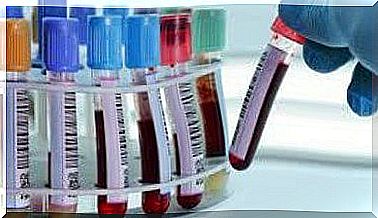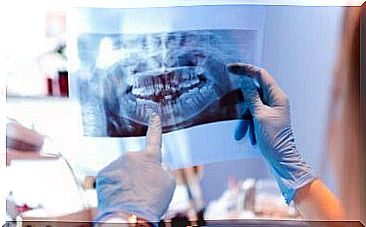7 Signs Of Bladder Cancer You Shouldn’t Ignore
Find out the 7 signs of bladder cancer.

Although some signs can be explained by other issues, it is essential to pay attention to them and not ignore them. You need to get early diagnosis and treatment in case you have bladder cancer.
The bladder is a pocket-shaped muscular organ. It has an ability to shrink and expand by storing urine produced by the kidneys.
The cancer that affects it occurs when transitional cells grow disproportionately in its inner membrane, forming tumors within its tissues.
In the majority of cases, these cells develop in the urothelium. That is, in the innermost covering of this organ.
Good detection is the key to avoiding tragic consequences. This is because over time they can spread to other areas of the bladder and other nearby structures.
The problem is, many of the early symptoms are misinterpreted because of their connection to other issues. Unfortunately, this makes diagnosis difficult in many patients.
This is why it is essential to remain attentive in the face of any sign. Especially if you have risk factors like smoking or exposure to toxic chemicals.
Below we will give you in detail the 7 main symptoms so that you do not hesitate to consult a doctor if you suffer from them.
Discover them!
-
Bleeding in the urine

One of the first symptoms of bladder cancer is the presence of blood in the urine. Its quantity can vary and its presence is, in general, irregular.
- Patients may notice a change in color in the urine, which turns rather pink or, more rarely, dark red.
- In some cases the color of the urine is normal to the sight, but small amounts of blood are detected by performing medical examinations.
- The symptom may persist for several weeks in a row, or it may appear overnight.
- What is certain is that if it is not a disease, the blood will reappear in the future.
2. Changes in urination habits
We must take into account changes in urination habits as a possible sign of bladder cancer because, although they usually occur due to an infection, they can also be critical in getting a quick diagnosis of this problem. .
It is necessary to consult a doctor if:
- A recurring feeling of wanting to go to the bathroom appears, even when there is no urine to expel.
- Increased desire to urinate at night.
- Low urine flow.
- Burns when urinating.
3. Pain on one side of the back
UTIs, along with stones and cancer, usually cause bothersome pain on one side of the back, near the lower back area.
Although it is initially confused with muscle pain, its recurrence and intensity lets you know that something else is happening.
It is important to pay attention to this, especially when it is accompanied by noticeable changes in the urine.
4. Loss of appetite
There are many factors that need to be analyzed when a person loses his appetite; however, you should also be aware that it could be cancer.
Patients who develop tumors in the bladder have a permanent feeling of heaviness. In the majority of cases, it prevents them from enjoying meals as usual.
5. Weight loss

As a result of the loss of appetite and the damage caused by cancer, people affected by this problem start to lose weight alarmingly.
Severe nutritional deficits occur in the body, and as the defense mechanisms decrease, malignant cells have more opportunity to develop.
6. Inflammation
Fluid retention or edema are consequences of the inflammatory response occurring in the body due to the attack of cancer cells.
In this particular case, it is common in the stomach and legs. Indeed, the bladder can no longer fulfill its role optimally in the elimination of fluids.
7. Feeling tired and anemia
One of the other consequences of loss of appetite due to bladder cancer is a strong feeling of fatigue, usually associated with anemia.
The loss of nutrients decreases the production of red blood cells in the blood and, as oxygenation is reduced, physical and mental fatigue increases.
In conclusion, although the symptoms mentioned may appear due to mild or less aggressive problems, it is important to seek medical examinations. This will help determine if they are linked to bladder cancer.
As with other types of cancer, early detection is the key to getting effective treatment.









